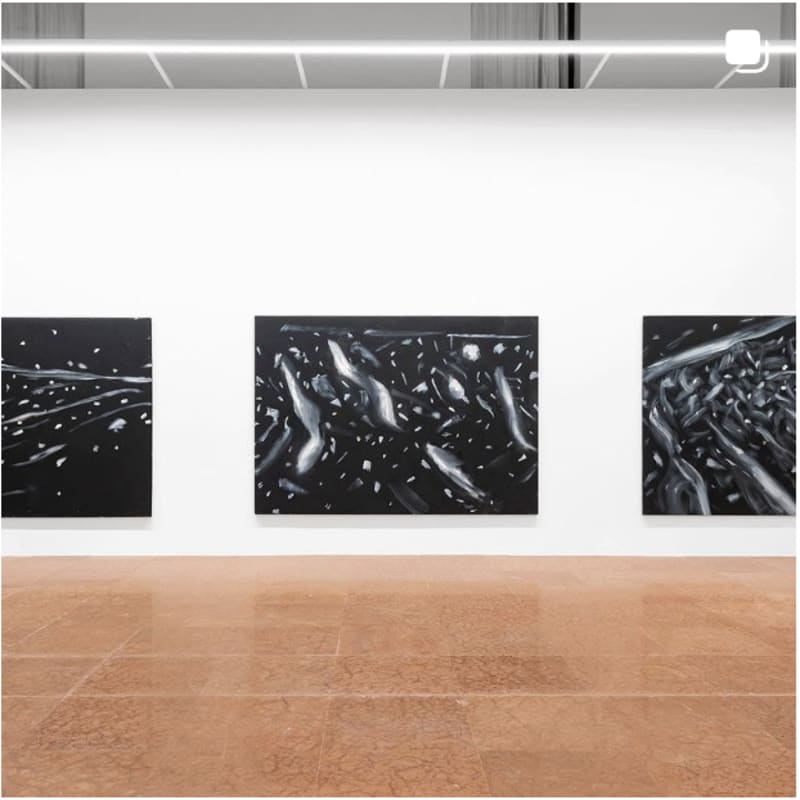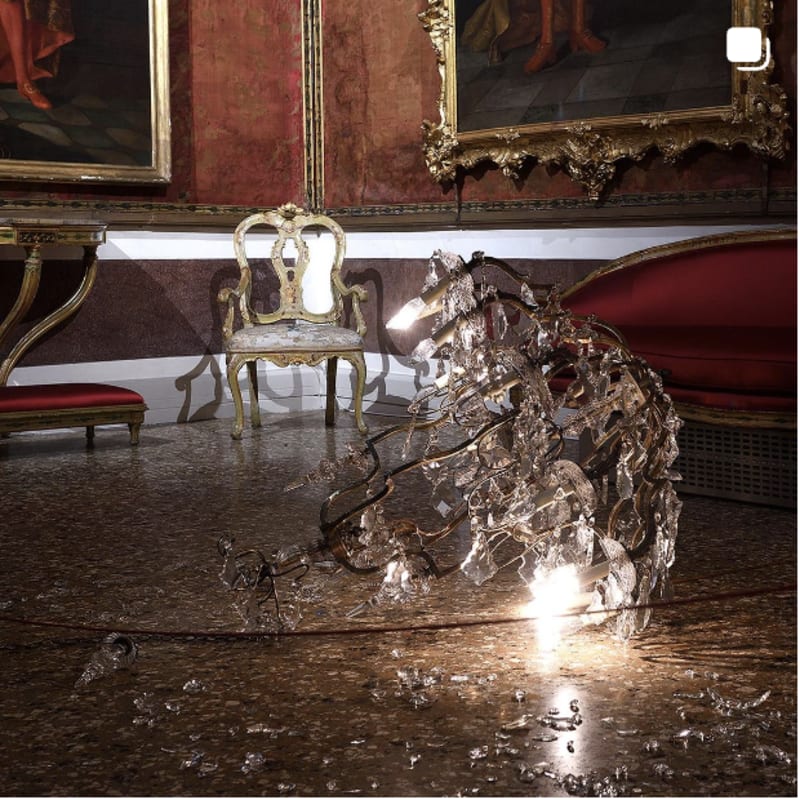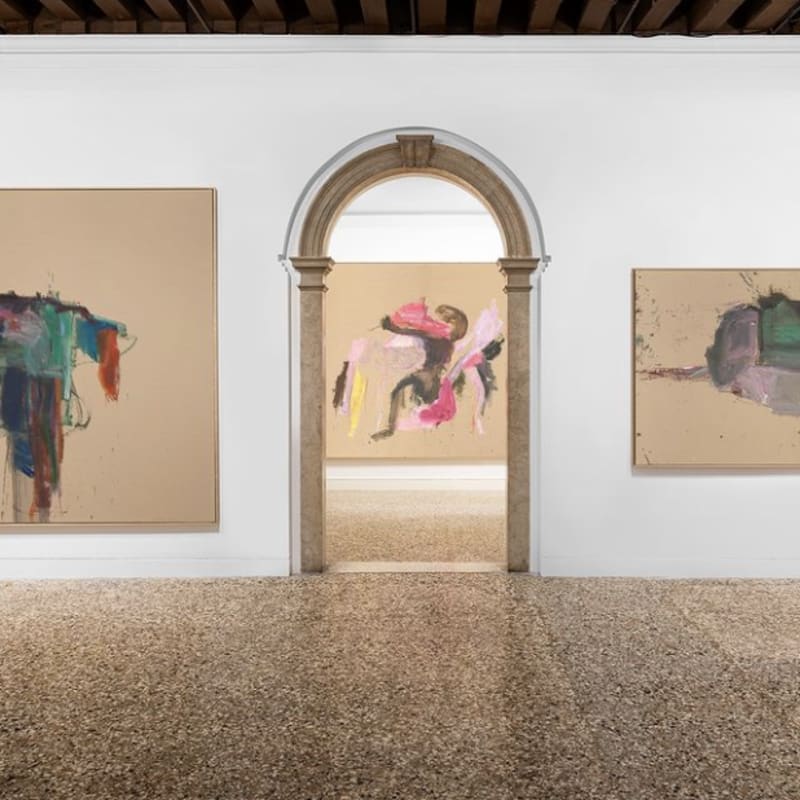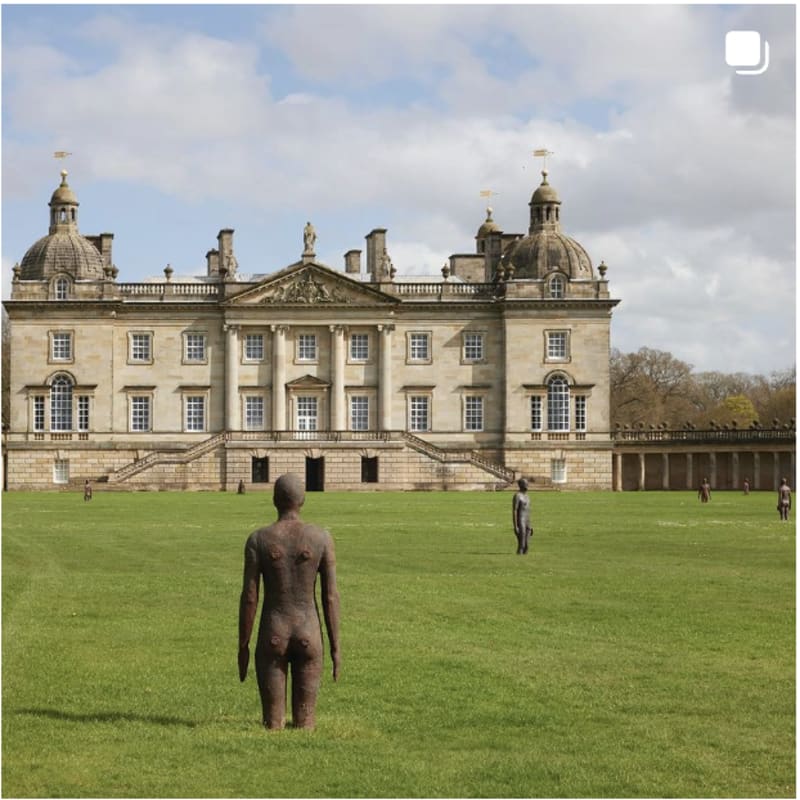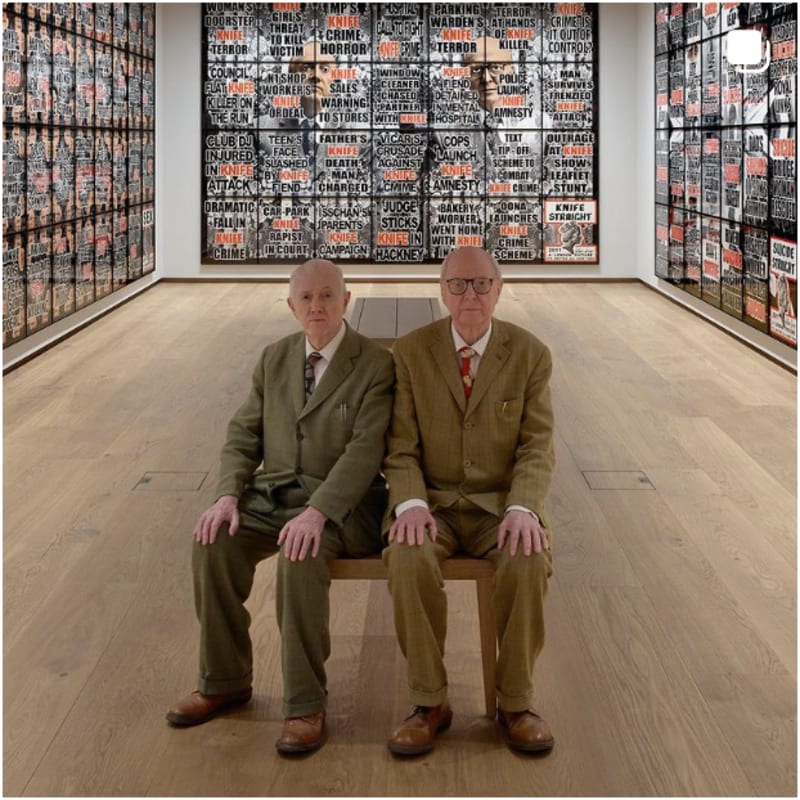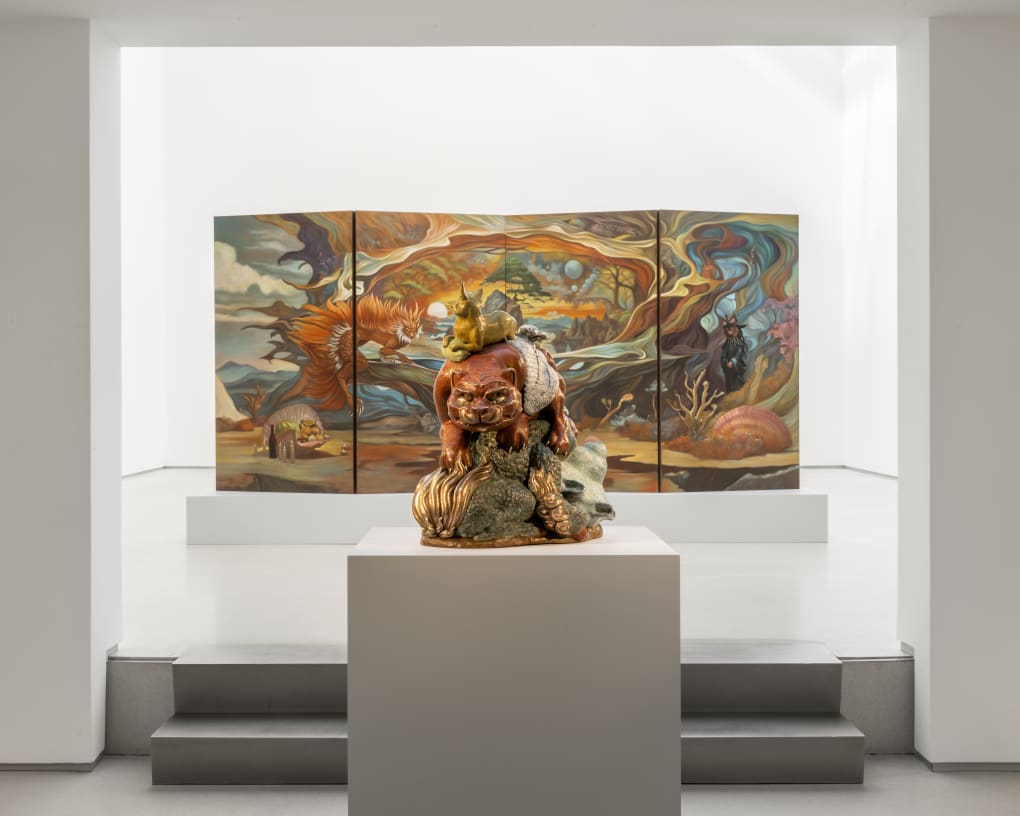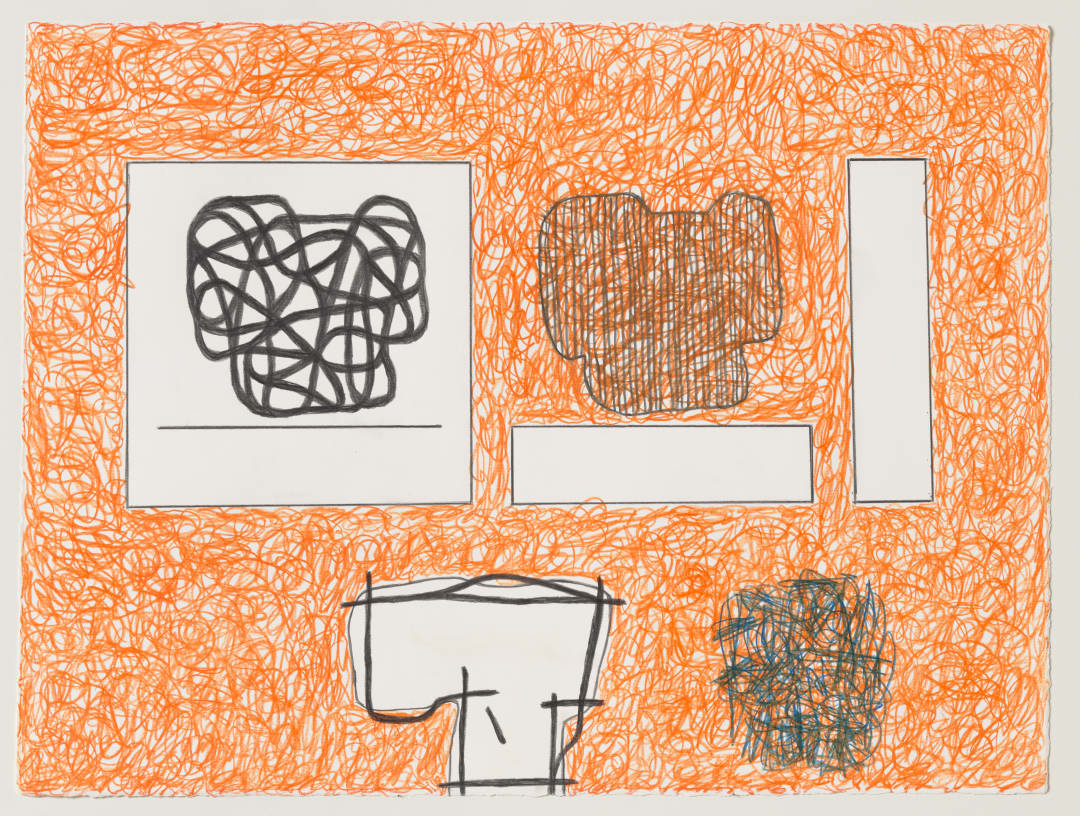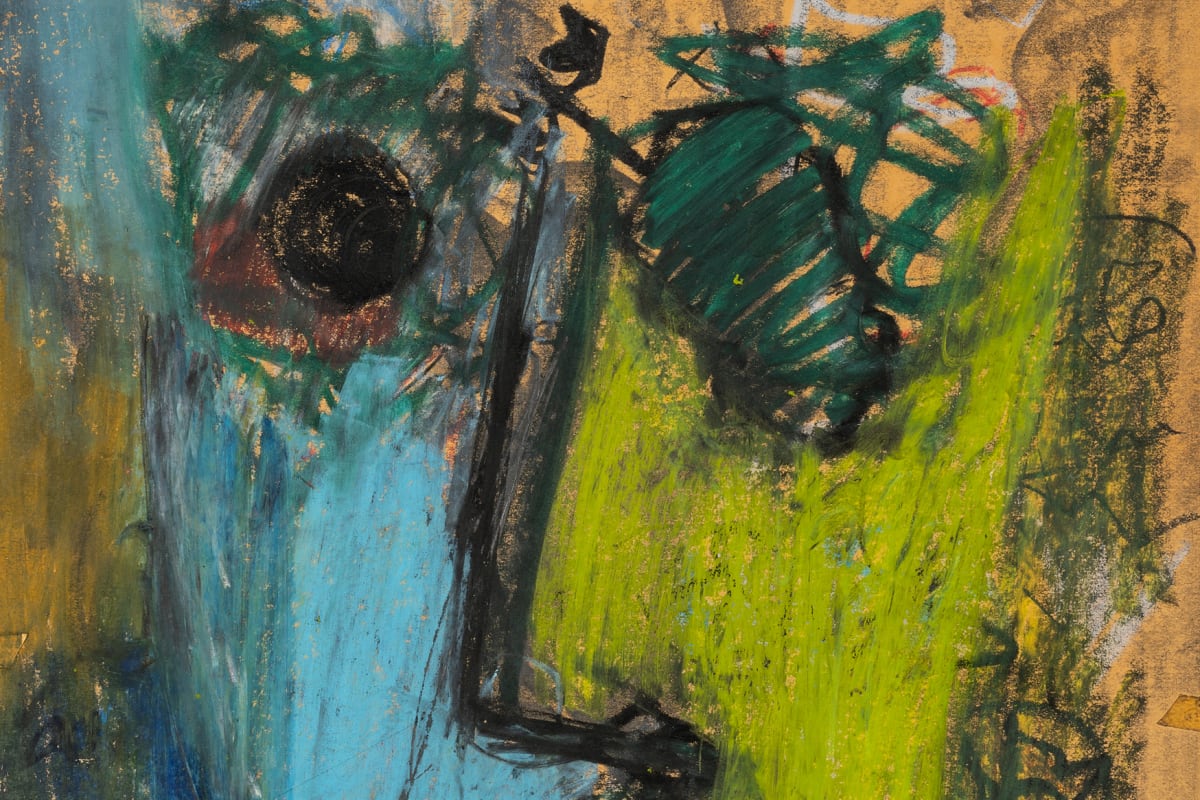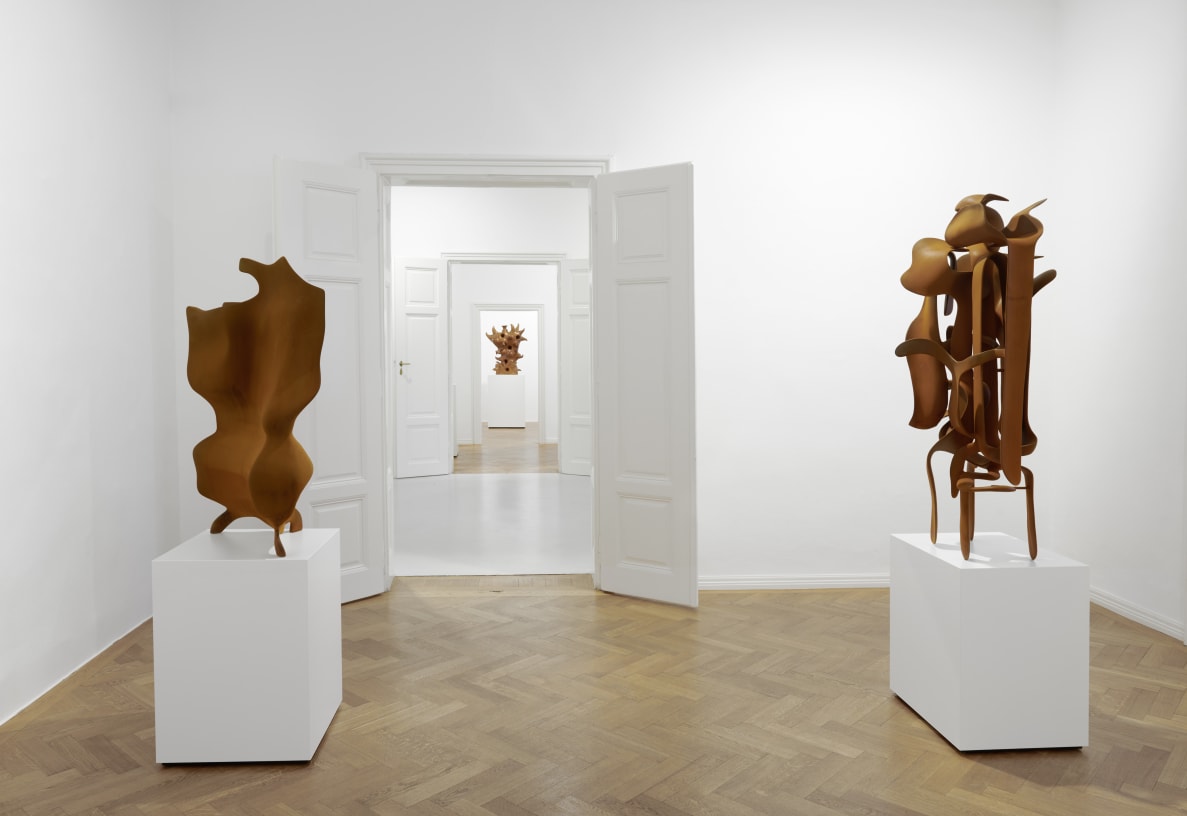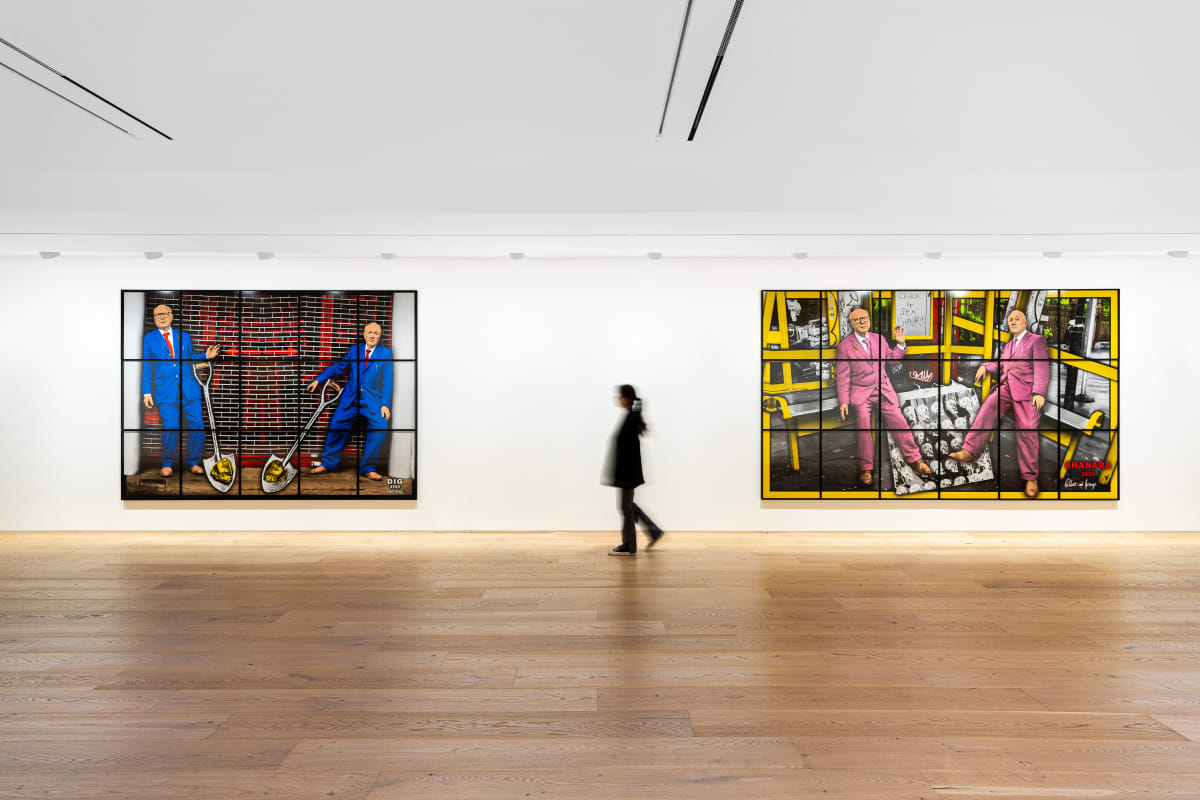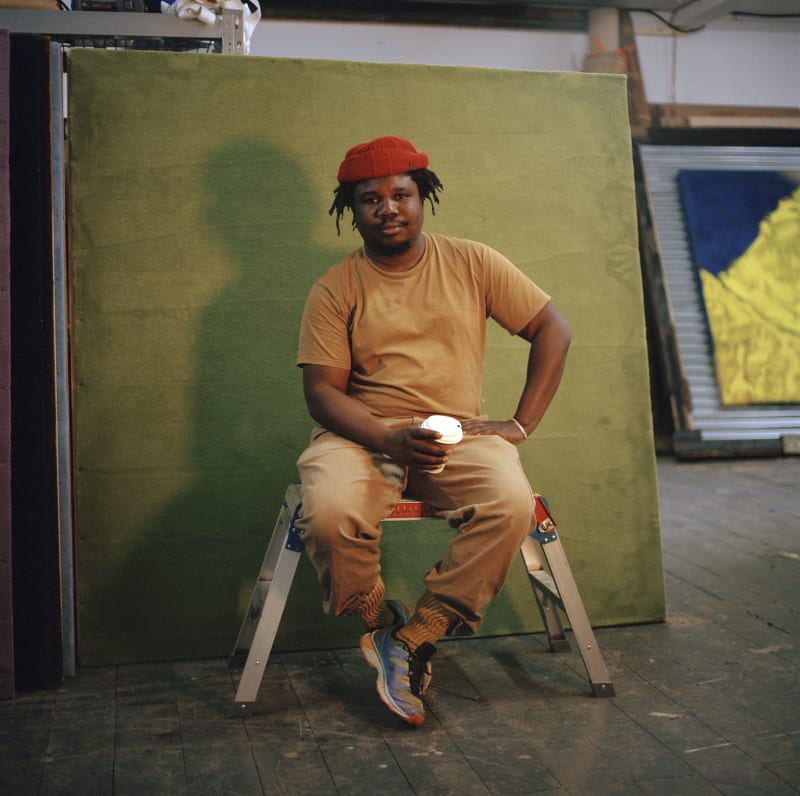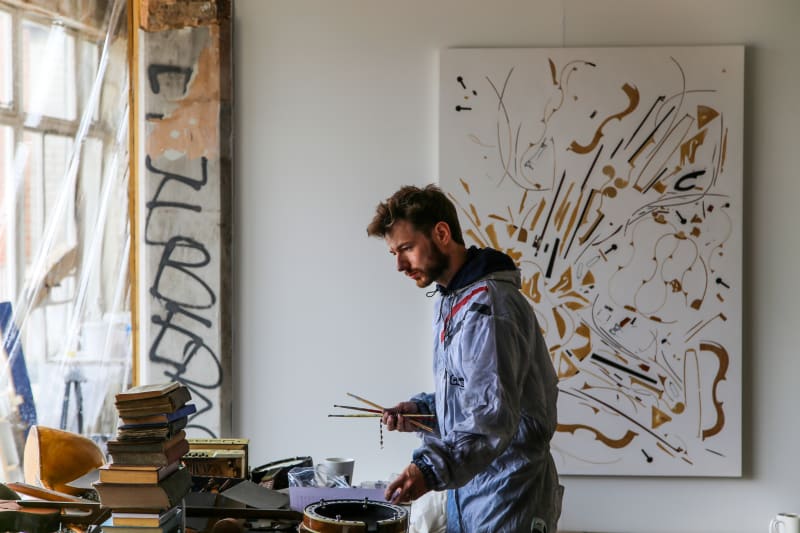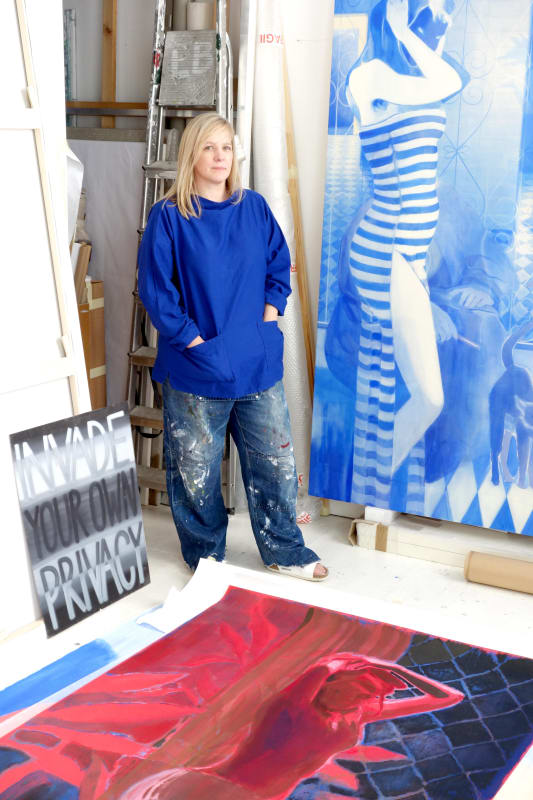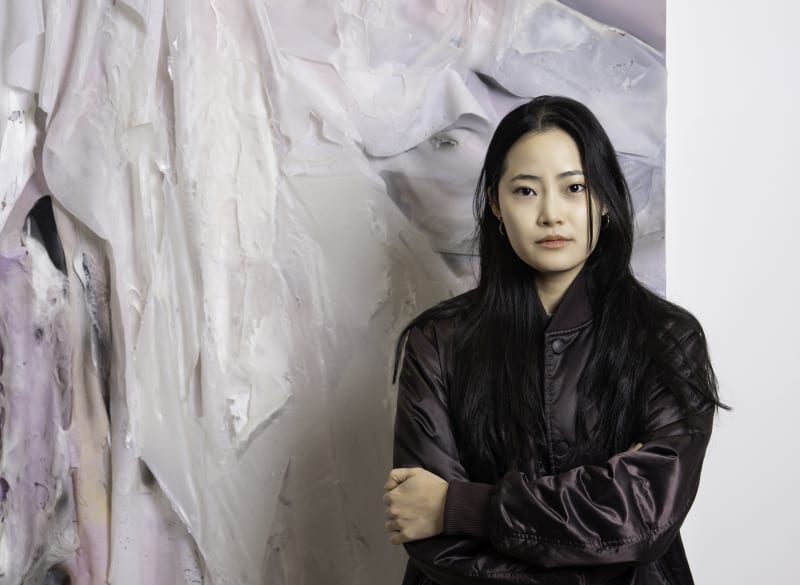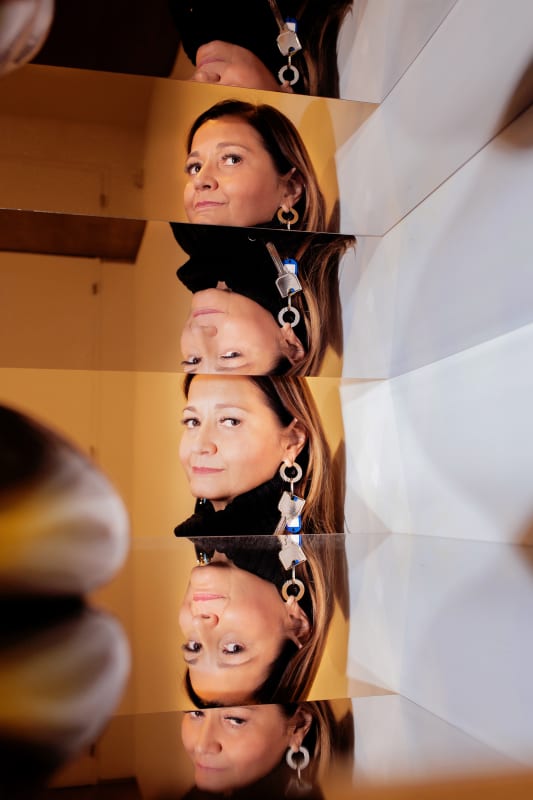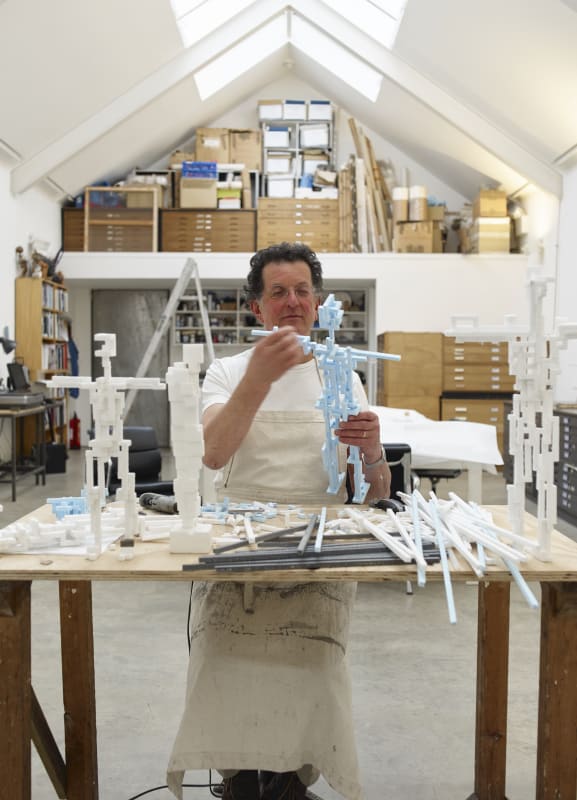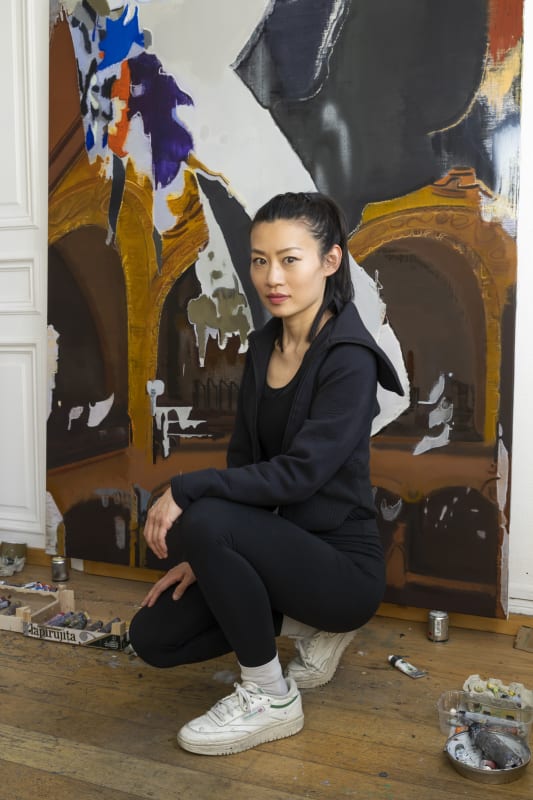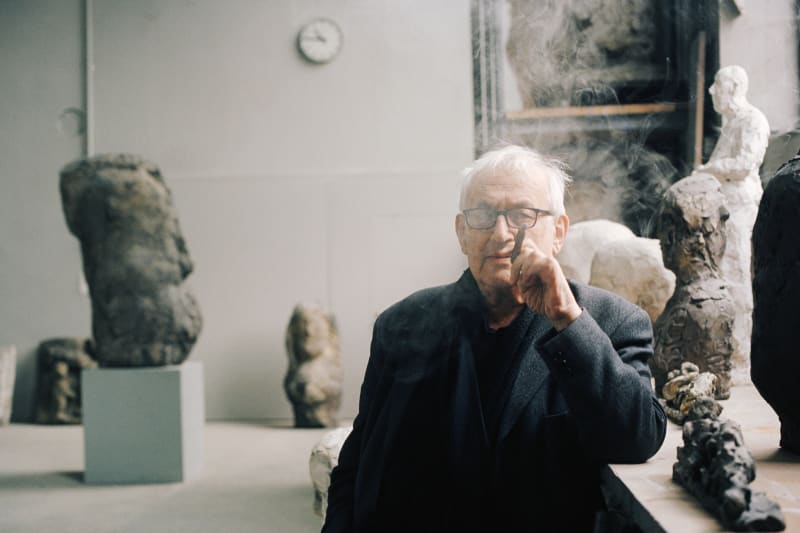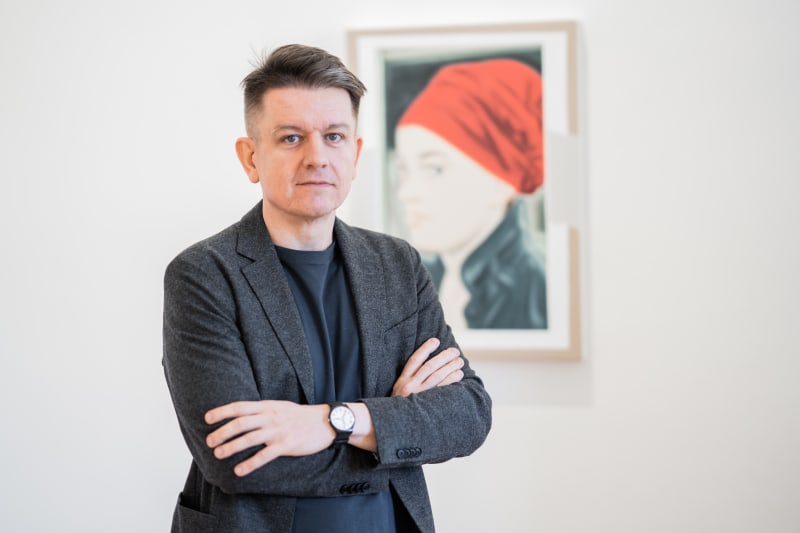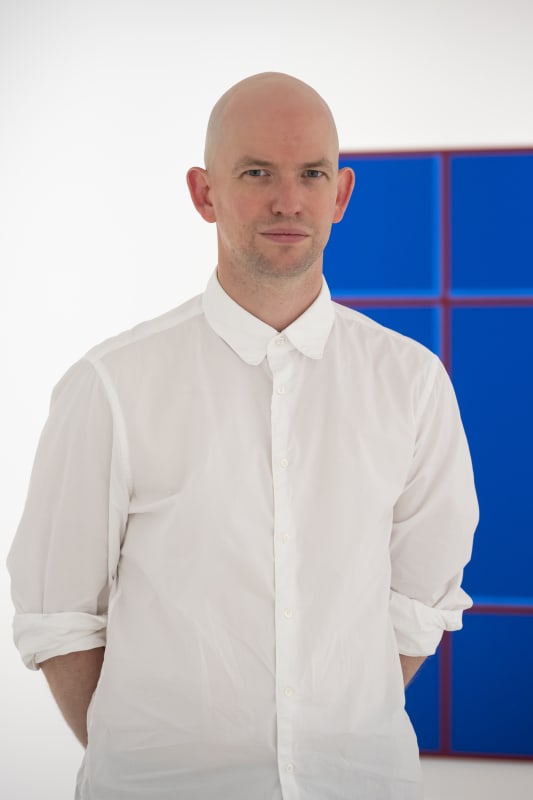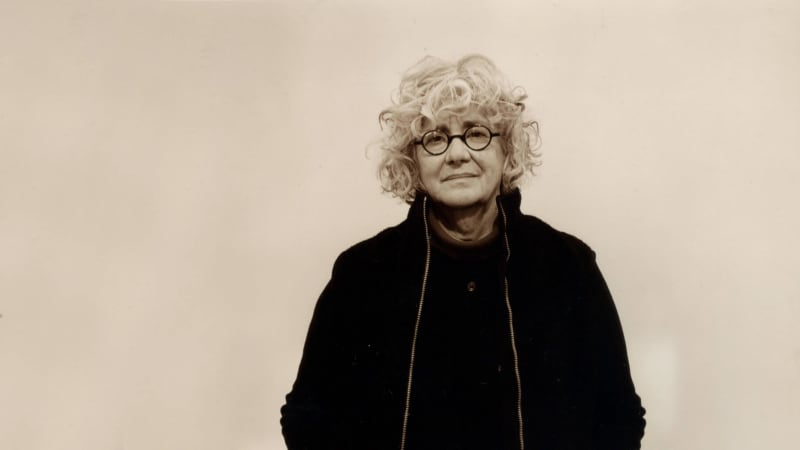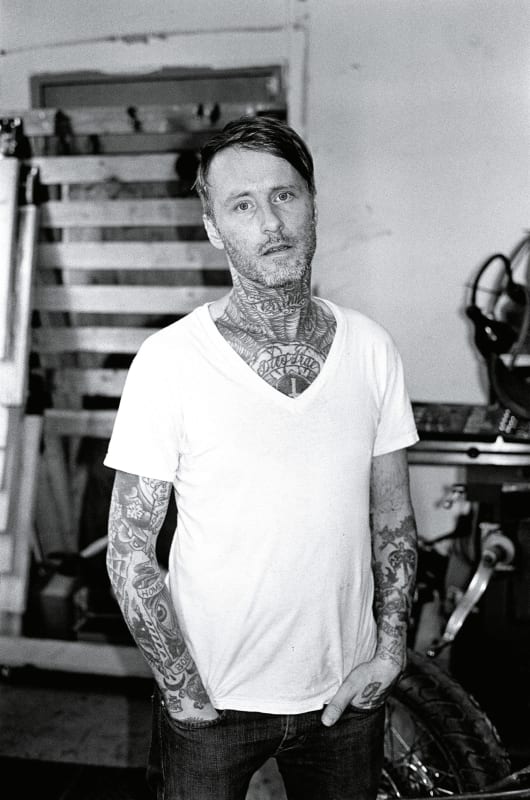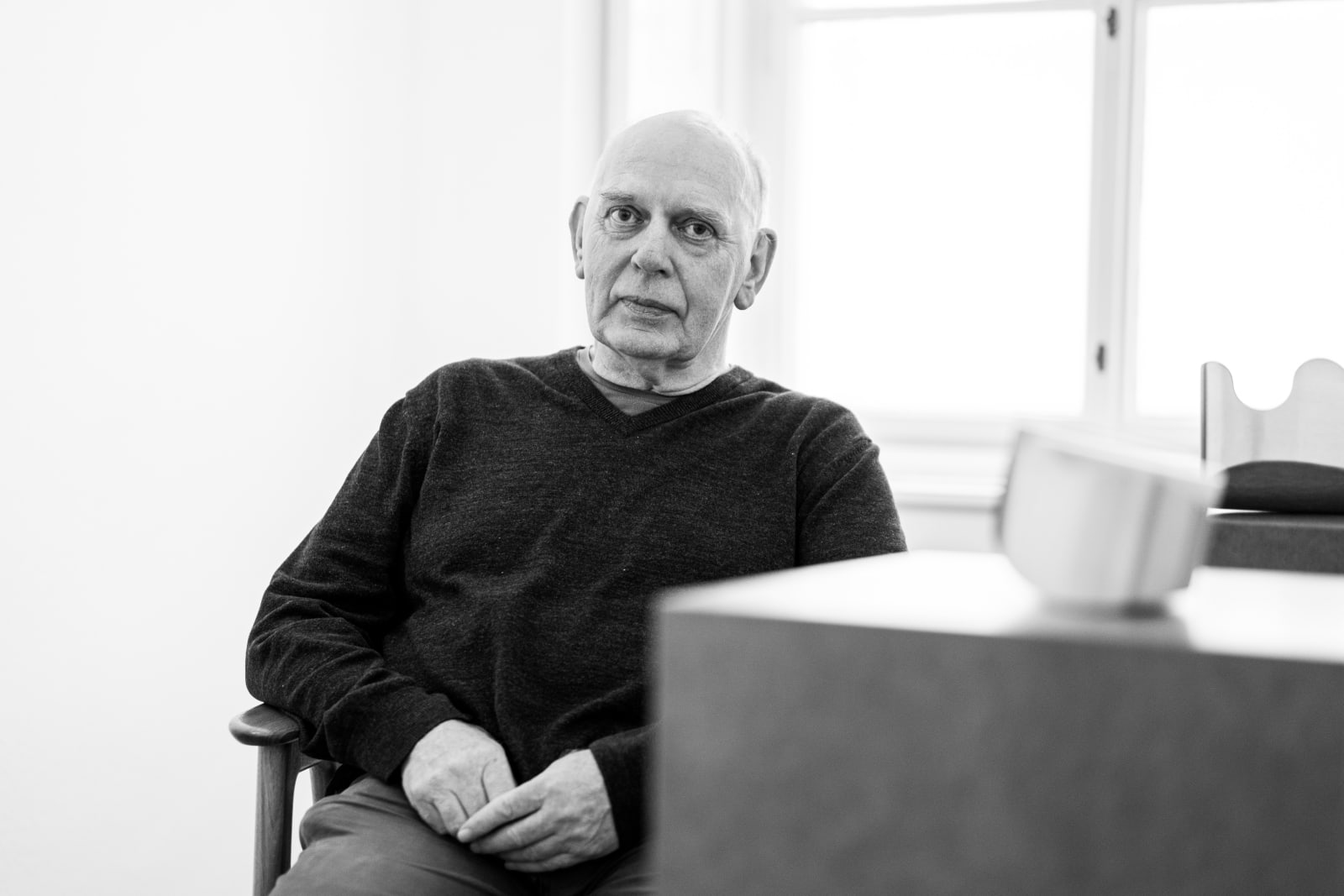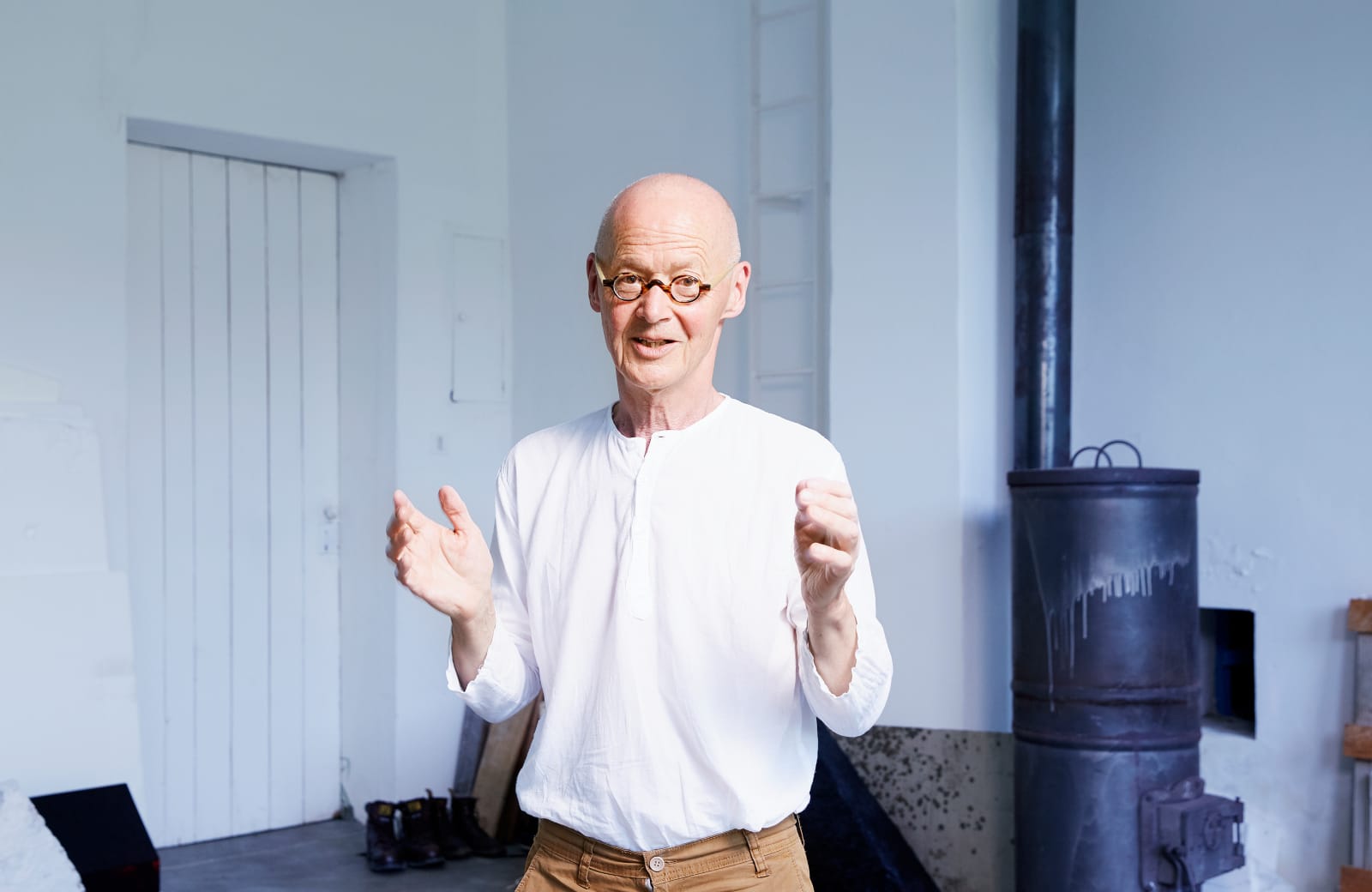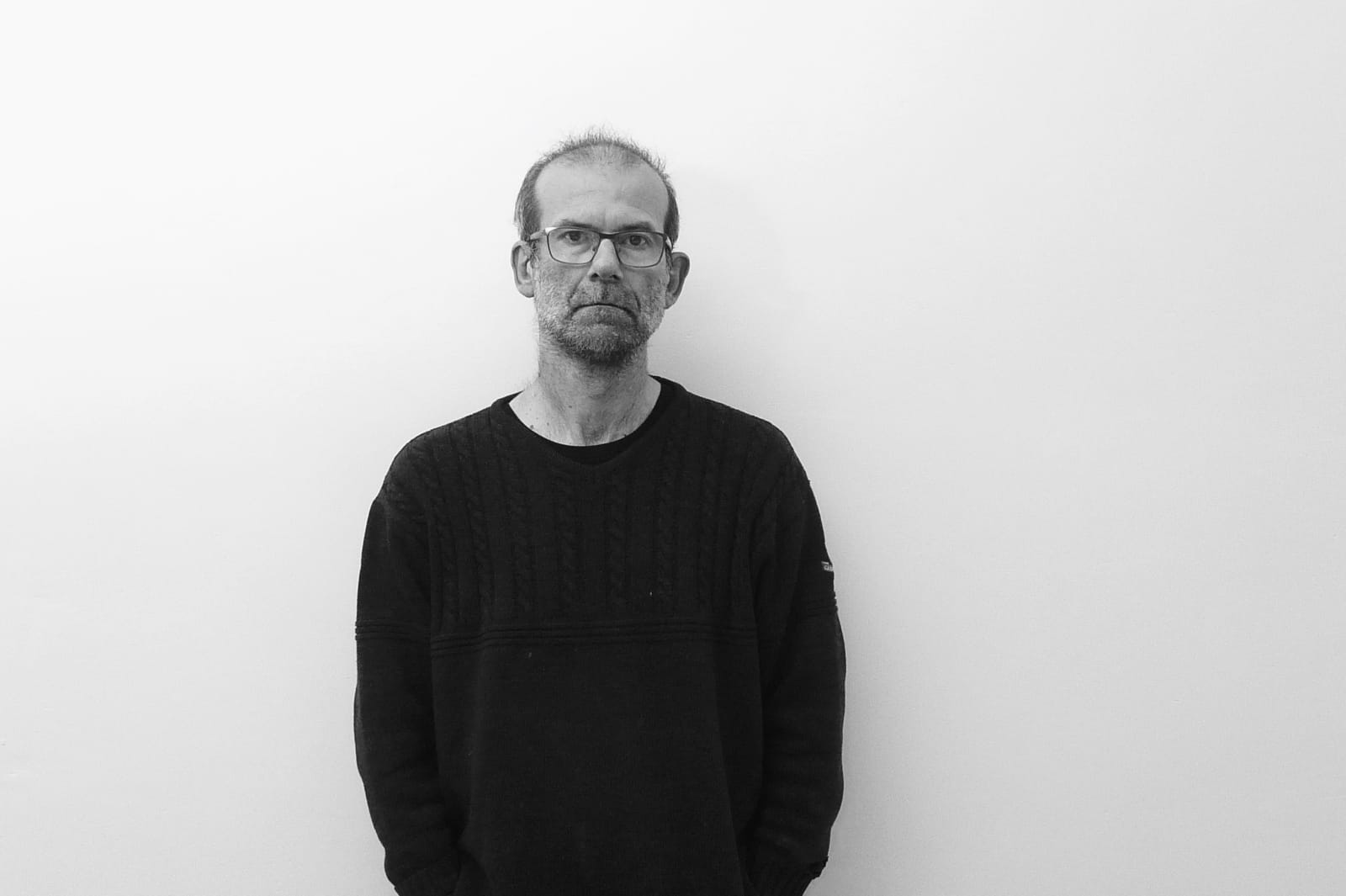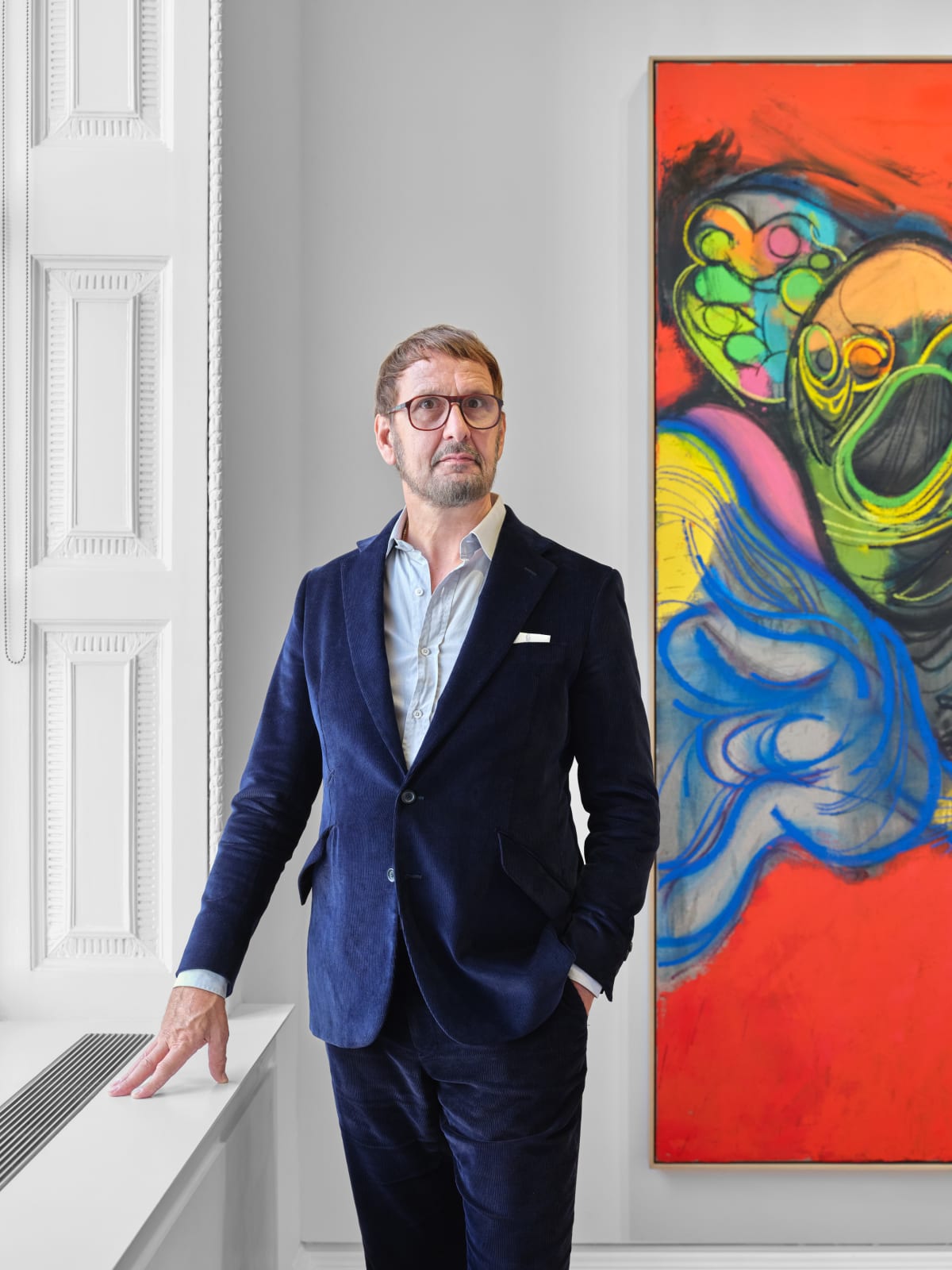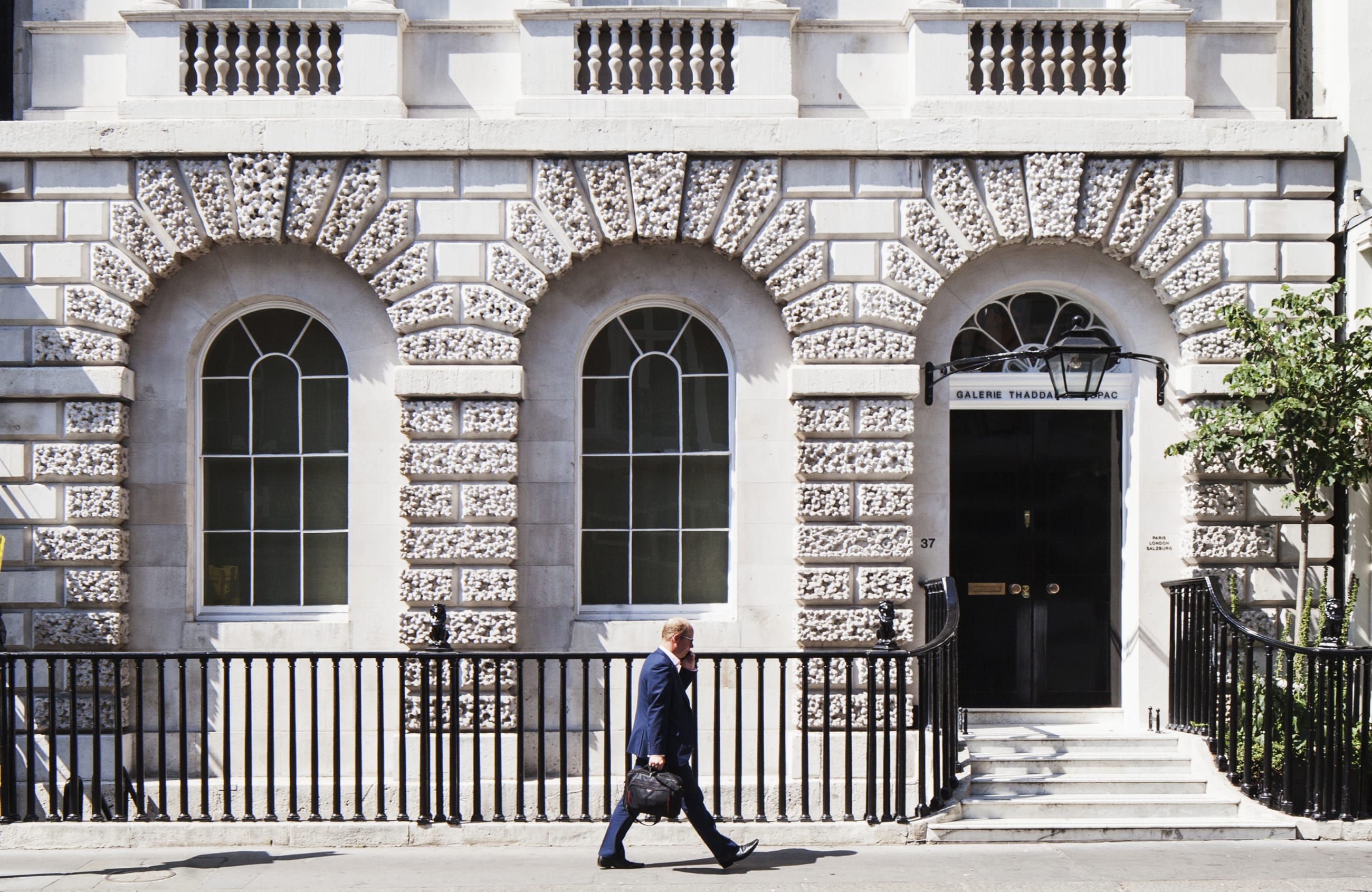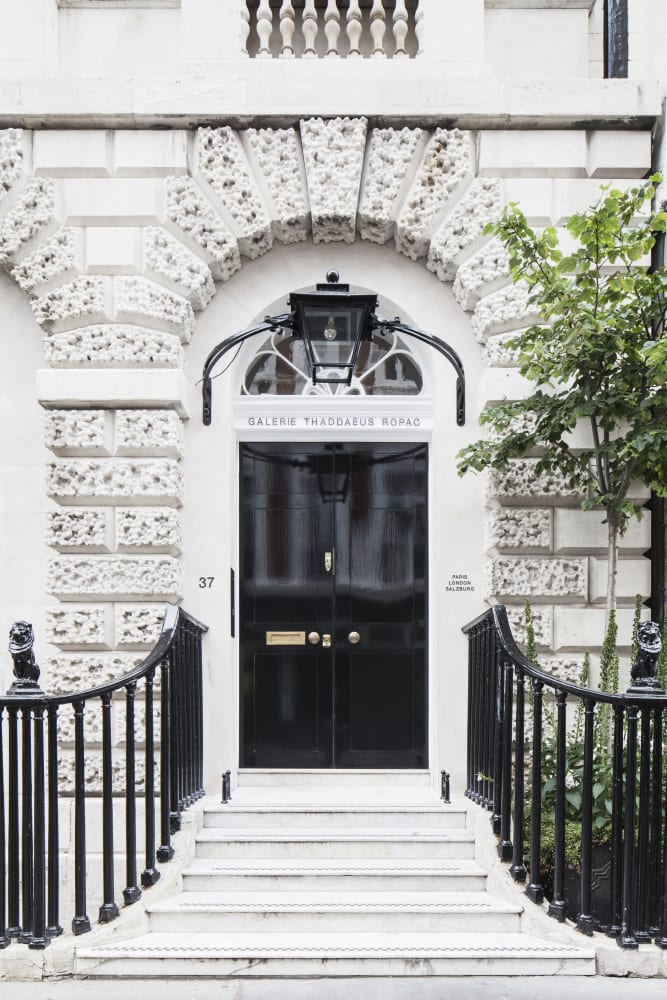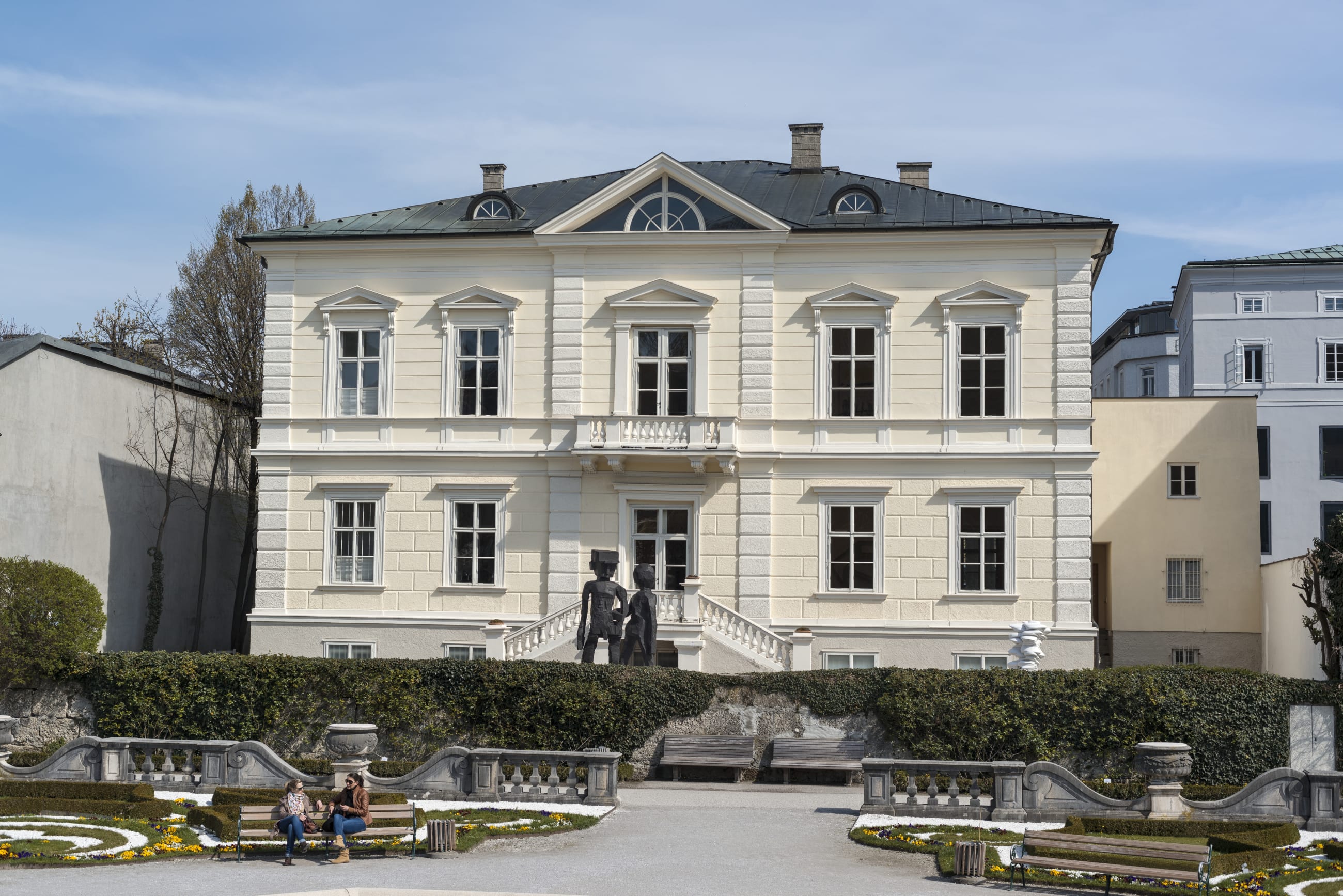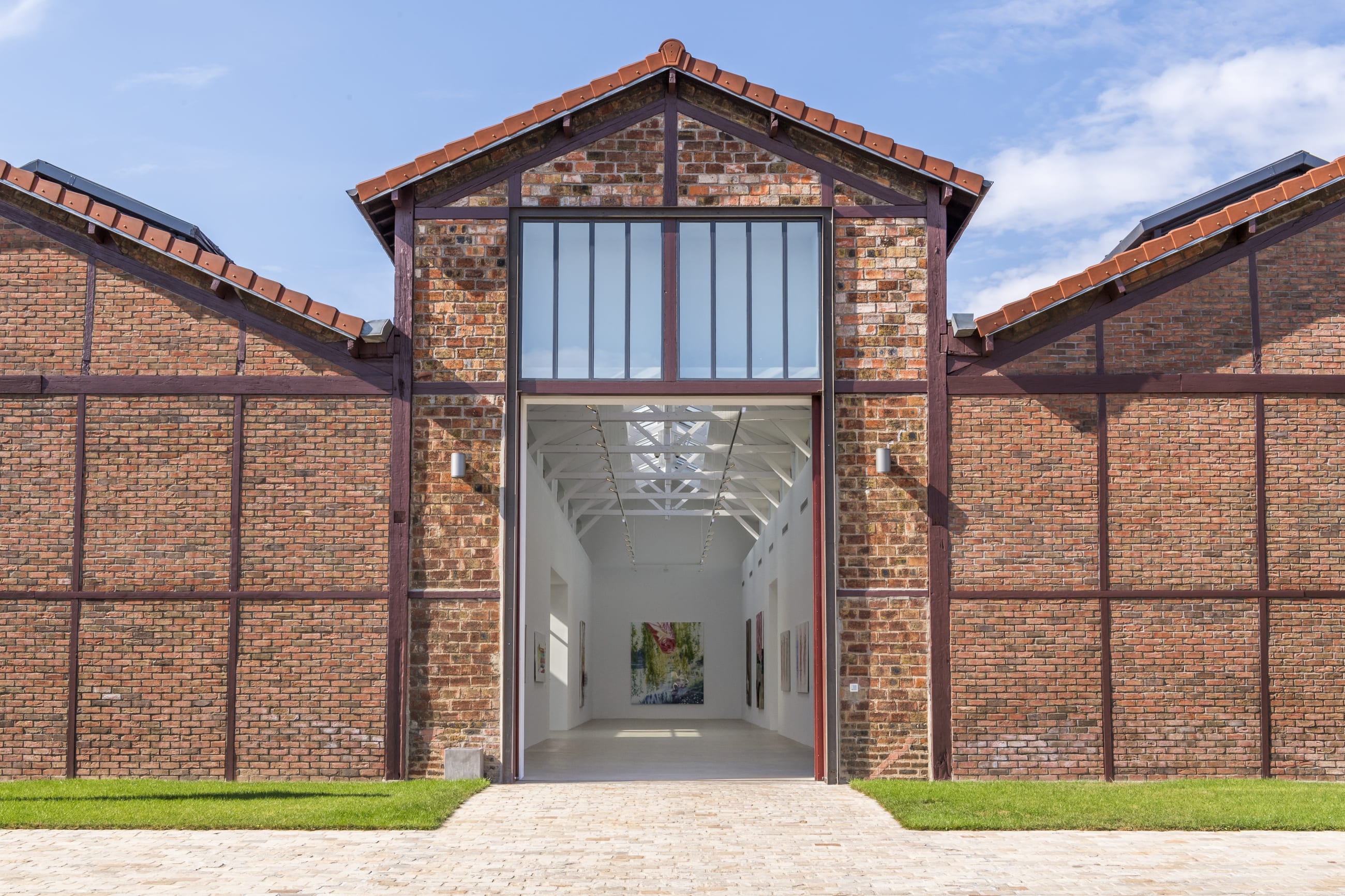Meet Rachel Jones, an ascendant painter whose jitteringly electric paintings have captivated viewers in London and collectors worldwide
by Amah-Rose Abrams
Standing in front of a painting by Rachel Jones is akin to letting her take you on a journey around her emotional landscape, with her skillful use of color and composition as your guide.
One of the artist’s focuses is Black interiority, accessed somewhat literally through her frequent inclusion of mouths and teeth. Sometimes these elements are visible and sometimes they are submerged: In works like lick your teeth, so they clutch (2021)—currently featured in the Hayward Gallery’s survey of contemporary painting, “Mixing It Up”—the teeth and mouth morph into hills, rocks, valleys, and mountains. Circles and flowers might represent grills, but they could also be trees and waterfalls, such is the ‘magic eye’ effect of Jones’s work. Unique and seductive, her abstractions manage to convey the infinite psychological landscape that exists within a person’s self.
“I love the idea that you can make artwork from a place of feeling, and that’s enough of a reason to make something, because I think that’s the truth of it,” she explained. “Anything that’s produced, it comes from some sort of desire or a need, and all of those things are emotional and physical reactions in our body.”
Jones appeared in an autumn 2020 group show at Thaddaeus Ropac alongside Alvaro Barrington, Mandy El-Sayegh, and Dona Nelson. Ropac signed her shortly thereafter, and institutional and collector attention followed, resulting in an intense demand for her work over the past two years. Another 30-year-old artist might be overwhelmed by so swift a rise, but the Jones has remained focused on forging a life best suited to making work.
Her evolving practice is on view in “SMIIILLLLEEEE,” on view at Ropac’s London gallery through February 5, taking over the majority of the large space. The show is a combination of paintings of all sizes, some on stretched canvas and some hung straight onto the wall, ranging from a few inches to meters in size.
The large-scale works for which Jones is known are present, as are some riffs on her practice to break up the formality of the gallery space. Upstairs, there is an intervention on a wall, with the words “Son Shine” written across either side. One work is a sticker on the floor and others are placed at varying heights, some very low on the wall, drawing viewers in, encouraging them to immerse themselves in the work. You are encouraged to bend down, lean back and step up to the paintings, creating a conversation between the work and the viewer.
“I am very interested in placing my history and my relationship to painting within the work, she said to Artnet News. “It’s really meaningful to have people to interrogate those ideas and to think about them. There have been so many Black intellectual writers and poets who have talked about these things for such a long time, and it’s great to be able to feel as if I’m contributing to that conversation.”
Jones graduated from the internationally renowned Glasgow School of Art in 2013 and went on to complete her master’s at the Royal Academy of Arts in London. There she attracted the attention of, among others, Chisenhale director Zoé Whitley, who has tapped Jones for the forthcoming solo show, “Say Cheese,” in March 2022.
“I first saw Rachel working in a different register when she was still a student at the RA schools and was thinking through what a language of her own might be,” Whitley told Artnet News. “It’s been so exciting to see how assured she’s been in finding a visual language that allows her to express so many of the very nuanced themes that she’s interested in. She has this very urgent sense of finding herself within the glare of what it means to be a painter today.”
This evolution is an artist is key for Jones, who starts each new work with the body of painting that came before. “I am really excited to see the way the work develops over the years, because I look at the practice as having longevity,” Jones told Artnet News over Zoom. “And to become clearer over the years, because each body of work relates to one another.”
Jones works in oil sticks, and her process both is physical and emotional, tied together with an intuitive sense for composition and balance. “Every painting pretty much involves all of the colors on the spectrum,” Jones explained. “It’s very important that there is a sense of balance and that there are moments where the eye can rest. There have to be periods within the painting where the movement allows you to linger or to pause, so that it’s not constantly like an onslaught.”
Her mark-making, although layered and complex, has a sense of immediacy that makes it highly legible. In some places the strokes are frenetic and in others they are layered and blended, there is sense of experimentation; Jones is getting to know her palette, and seeing the progression is exciting.
“The colors can be forceful, or they can be muted, they can inquire, or they can be seductive, or violent, or harsh,” Jones said. “Using color becomes like a form of communication.” In these moments, Jones is not only communicating with the viewer, but also with herself: “All of those things operating together is something that happens through making the work with a sense of following my nose and listening to my intuition, then waiting for a point to feel like the painting has enough and it holds itself together.”
“People are drawn to the way she communicates through color and a visual lexicon that hovers in between the concrete and the enigmatic,” her gallerist, Thaddaeus Ropac, told Artnet News. “There’s an intensity of joy and complexity in her works that instantly captivates and holds you in their thrall long after.” He has placed her paintings in such institutions as the ICA Miami; the Museum of Fine Arts, Houston; Tate; Hepworth Wakefield, the Towner Art Gallery; and the U.K. Arts Council collection—“and this was before she painted the works that are now on view in her current exhibition at our London gallery,” he added.
The waiting list for the works on view is long, according to Diane Abela, a director at advisory Gurr Johns, due to the quality of Jones’s work—but also smart management from Ropac.
“Personally, I just thought, wow, this is something completely different, something that you haven’t seen in the art world,” Abela told Artnet News. She cited the institutional interest in her work, coupled with its affordability—prices are high but are not inflatedfigures around €30,000 have been mentioned.
Jones herself is focused on the long game. A passionate gardener, she also makes music and has “only painted in silence once when my batteries ran out.” She plays CDs and takes herself off the grid while listening to whole albums, enjoying making art to a complete body of work, as opposed to a streaming online. She wants a quiet life, but one centered around art, and she is currently completing a teaching qualification, which she sees as a practice to accompany a life of making. This pared-back approach is what allows her to channel herself so completely into these complicated and consuming works.
“I’m excited to see the narrative develop and the form that that takes visually, how that shifts,” she said, “but I’m also looking forward to being able to work with people in a collaborative manner, because painting is a very solitary practice. I’m really looking forward to having the opportunity to build relationships through making work.”


